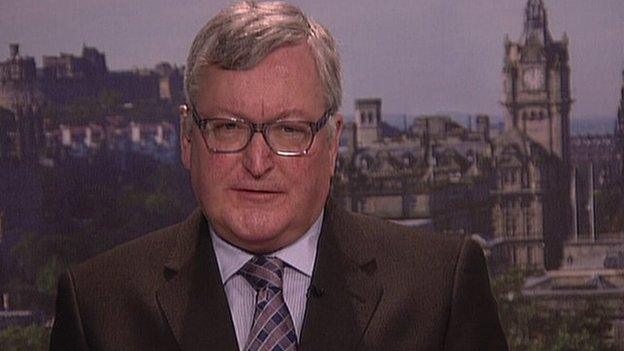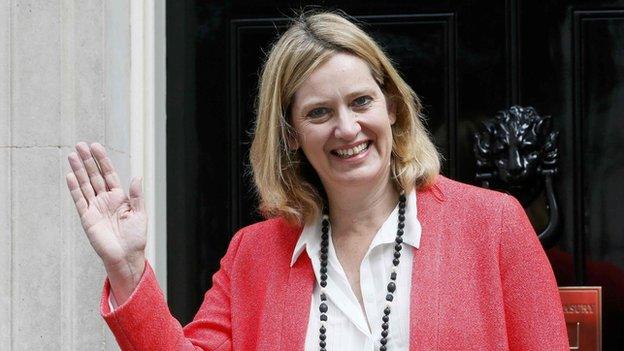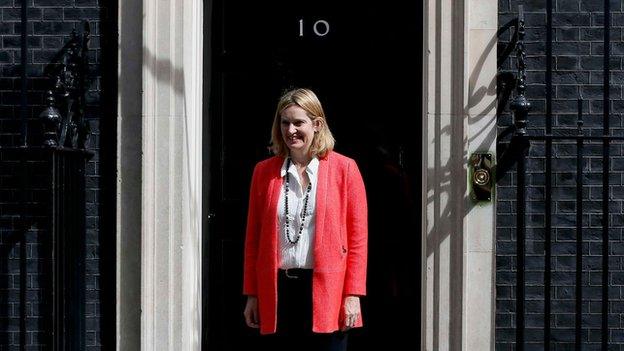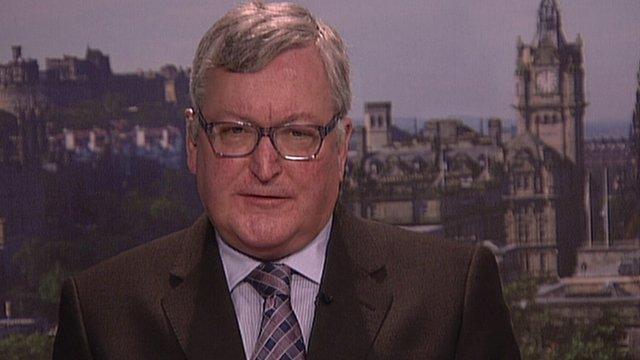Scotland 'frozen out of green energy decisions' says Fergus Ewing
- Published

Mr Ewing said he feared any changes could damage Scotland's reputation in the global energy industry
The Scottish energy minister has complained to his UK counterpart that Scotland is being frozen out of key decisions on green energy.
The Conservative UK government plans to stop subsidies to onshore wind power - and policy details are expected soon.
Prime Minister David Cameron has pledged to consult with Scotland before any change but that has not happened.
Scottish Energy Minister Fergus Ewing said he was concerned because onshore wind is so important to the economy.
In a letter to the UK Energy Secretary Amber Rudd, Mr Ewing said: "It is disappointing that I have not had the opportunity to engage with you on this ahead of it being a matter for speculation in the press.
"We have not received any information from your department on the possible options you are considering or what analysis has been done to assess the impact on projects in Scotland."
'Crisis of confidence'
Mr Ewing warned that changing previously-agreed subsidies would cause a crisis of confidence with business.
His letter said: "Any lack of clarity on the UK government's intentions has the potential to stall a very substantial pipeline of investment in the UK and Scotland and dent (our) reputation with developers and inward investors."
Mr Cameron may be planning a strategy in which he appeases his own backbenchers by stopping subsidies in England and Wales - but then allowing them in Scotland, where the majority of wind farms are being planned anyway.
Mr Ewing wants to know whether this is the case. He believes it is irrational to end support for the UK's cheapest form of clean energy.

Amber Rudd is the new head of the energy and climate department, Decc
Experts have warned that choking off onshore wind energy would lead to higher bills as clean electricity is obtained from more expensive sources such as offshore wind.
Businesses are furious to hear rumours that a subsidy scheme known as the Renewables Obligation might be scrapped earlier than its planned end date of 2017.
They say it is unfair on firms which have invested in design, connectors and planning permission.
The row follows a previous dispute in which the UK government scrapped solar power subsidies early, while continuing support for nuclear power which has been subsidised for more than 60 years.
Ian Marchant, from the British Wind partnership, said: "The proposed approach contradicts the government's manifesto commitment to "meet our climate change commitments, cutting carbon emissions as cheaply as possible, to save you money" - as the cost of substituting more expensive technologies in place of onshore wind would add several hundred million pounds every year to bills.
"It surely cannot be the government's intention to deny local communities the chance to host onshore wind projects if that is what they want to do.
"Energy policy needs to honestly reflect the views of voters: the government's own polls show onshore wind is backed by 65% of the public - more than supported any political party at the election."
'Stopped too late'
One possibility mooted in a recent report is that the government has run out of cash it allocated for renewables. , external
The decision on when to withdraw subsidies is a delicate one. If they are stopped too late, consumers will get needlessly charged; if stopped too early then the industry will fail to fulfil its potential - in the short term at least.
Some energy experts say onshore wind will be competitive with new-build gas power by 2020.
The energy and climate department (Decc) said no decisions on the subsidies had been made, but that an announcement should be made soon.
A UK government spokesman told BBC News that Scotland would be consulted but could not say when.
- Published11 May 2015

- Published16 January 2015

- Published2 October 2014
